
Edition 191 - April 2021

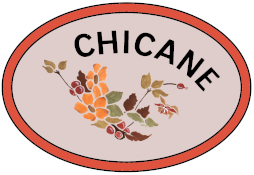
EDITORIAL
By the time you read this we'll have sprung forward with the evenings longer, the flowers in full bloom and the hedges greening up by the day. Spring has arrived! We'll be celebrating Easter and hopefully an easing of restrictions so that we can meet up socially again.
There has been movement in and out of the village and we send best wishes to those leaving and warmly welcome newcomers. We hope you will all be happy in your new homes. We also send get well wishes to everyone not feeling at their best right now.
Newsletter funds continue to look quite healthy and I thank postal readers who have renewed their subscriptions and for all donations - keep them coming, they are so welcome and appreciated!
This is another bumper issue, and sincere thanks go to Angela for her delightful village map on the cover and to both regular and new contributors.
The next issue will be June, when unbelievably we'll be approaching the longest day! Articles and items for that will be welcome as soon as possible but by the 14th May at the latest please. Thank you.
In the meantime, stay well and vigilant.
Judie - Ed
1

2

THE HYGIENE BANK
You might have spotted a yellow box in the Community Shop with a poster showing our logo. We are the North Devon project of the Hygiene Bank and we are gathering unused hygiene products to distribute within the local community via charities, community groups and food banks.
We encourage donation of products and fundraise to purchase hygiene products. The funding is a lifeline to purchase essential hygiene items for people who are experiencing financial difficulties and unable to afford these basic items. Feeling clean shouldn't be a luxury or a privilege for anyone in our society, yet many are living in poverty and can't afford to be clean.
The Hygiene Bank has been operating in various parts of the UK since 2018 and we are currently establishing a north Devon area project. Our beneficiary groups include Encompass South West, Belles Place, Northern Devon Foodbank, Family Care/Intervention. We will be working closely with these organisations to address the hygiene poverty in the area.
Basic hygiene is about dignity. Imagine not being able to wash your hair, brush your teeth, change your baby's nappy or afford sanitary protection. This is happening to people today for a variety of reasons: low wages, high housing costs, benefit cuts, illness or bereavement. Hygiene poverty is shaming, excluding and isolating and the work of the Hygiene Bank directly benefits those in crisis.
Help us to help those in hygiene poverty.
We hope to build enough stock to ensure that we can provide a constant, reliable supply of product to help stamp out hygiene poverty and with your help we can succeed in making this a reality. We need toothbrushes, toothpaste, shampoo, nail clippers, soap, deodorant, cleaning products, hair brushes, cleaning sprays and any hygiene related product. These have to be unused and in date.
Please help us fill this box so that we can get these products to the people who need them.
3

WEATHER OR NOT
January and February
Welcome to the first weather report for 2021. January started off with quite a change to cooler brighter weather. On the first it was bright, dry and frosty with half cloud cover, at 0400hrs the temperature was -1.8˚C and only made 5.3˚C by 2100hrs. The wind was gentle from the North, and at lunch time we had a light shower which started the rain gauge off for the year with 1mm. The barometer was reading 1009.7mbars as the New Year arrived and was rising throughout the day. The sun did not manage to shine on the Sterridge all day. Please remember the hours recorded here in the Valley at this time of the year may be reduced due to the sunlight being screened by the surrounding hills and trees.

Looking over the month the warmest days were the 19th and 20th at 11.5˚C [average high 12.54˚C] which was when storm Christoph arrived; the coldest days were the7th and 25th at -1.9˚C [average low -2.27˚C]. The winds were generally light and only reached 33mph [average 41.62mph] from the South on the 29th. I recorded the lowest wind chill of -1.9˚C on the 7th and 25th [average -3.76˚C.] The rainfall total for the month was 163.4mm [average 143.55mm], the wettest day was the 19th with 19.4mm in the gauge. We also had three days when it snowed although it was only light, but on the 22nd I did manage to take this photo before it melted.
The barometric pressure varied with a high of 1030.7mbars on the 15th and a low on the 20th at 974.9mbars. Sunshine was in short supply with the best day on the 29th at1.53 hours and a total of 8.23 hours for the month [average14.12 hours] Humidity was generally high around the 96% but did fall to 73% on the 5th.
The first of February started off dull with 8/8 low cloud cover. The temperature ranged between 3.9˚C and 8.0˚C. The wind was light from the South with a top gust of 10 mph. Lowest wind chill was 3.9˚C. We had 6.0mm of rain and the barometer was rising from 990.0mbars. to 998.5mbars. by 1500hrs before starting to fall. The sun only shone for 0.99 hour.
Looking at the month, the warmest day was on the 24th with a top temperature of 14.1˚C [average 13.05˚C], the mercury fell to -3.1˚C on 11th [average -2.03˚C]. The maximum wind speed was 37mph [average 40.33mph] on the 23rd from the SSW. The lowest wind chill was on the 11th at -2.8˚C [average -4.3˚C]. The wettest day was on the 14th when 10.4mm fell, total for the month was 85.2mm [average 119.0mm] and for this year 248.6mm. The barometer ranged from a low on the 2nd of 989.7mbars. to a high on the 27th of 1042.3mbars. Sunshine hours were much better than January at 38.88 [average 43.23hours]. Humidity was generally high at 95% on many days but was only 56% at 1800hrs on the 12th. On the 7th we had storm Darcy [named by the UK Met Office] arrive but it did not produce anything out of the ordinary apart from a few snow flurries. Scotland and the North took the brunt with very low temperatures and plenty of snow.
It is nice to see the first signs of Spring showing and the sunshine makes the daffodils look outstanding. I hope the spring weather stays good so we can get out into our gardens and take our minds off the lockdown as it continues.
Take care and stay safe.
Simon
4
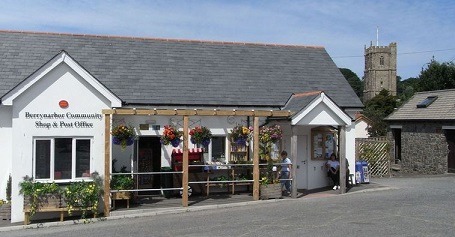
NEWS FROM OUR VILLAGE SHOP
Spring is in the Air
Here we are, at last, in April with the promise of warmer weather and the prospect of blossom appearing on the trees and in our gardens. But sadly, due to ongoing restrictions, we have had no option but to cancel next month's Great Berrynarbor Plant Sale.
However, if you have spare plants you were going to donate to the event, you can bring them along to the shop instead. They will be most welcome! And, on the subject of gardening, the shop has Durston's excellent compost available at last year's prices.
We are also now stocking Beebombs. These are native wild seedballs which will bring a touch of the spring meadow to your garden and help to bring back the bees and the butterflies. No real gardening skills are required and they can be scattered at any time of year. These Beebombs are handmade in Dorset and will make a great gift for all nature lovers.
Special Offers
There are lots of special Spring Offers now on our shelves. Check out our bargains on Lyons Gold Roast [just £1] and Miles Ground coffee and loose tea. Of course, you'll need something to go with them so we have Burts crisps both 40g and 150g at knock down prices! Hurry while stocks last.
New in we have a range of Free products including white bread mix, pasta base mix, stem ginger, double chocolate, chocolate chip and lemon zest cookies. All these products are free from gluten, milk, peanut, egg and soy but full of great, natural taste.
When May arrives, we shall hopefully see wonderful barbecue weather [fingers crossed!] and to help wash that down we'll have special offers on ciders, local beers and soft drinks. Don't miss out.
Volunteers Needed
Our Village Shop relies on its network of wonderful volunteers; without them we couldn't survive. So, what motivates someone to come forward and give just a few hours a week behind the counter? We asked Jenny Cookson and here's what she told us:
"I have been a volunteer from the first day our community shop opened in 2004. I really enjoy taking part, not only for the sense of giving to my community and keeping my brain working, but also the fun and social aspect of meeting most of our villagers on a regular basis - the chats and information titbits are priceless. Our Shop and Post Office really are one of the cornerstones of village life and has been through the decades."
If
you would like to join Jenny to become one of our volunteers, just have a chat
with Karen, Annie or Susan. No experience necessary and you will be made most
welcome.
5

ST. PETER'S CHURCH
As mentioned in the previous edition of the Newsletter, a new lockdown was introduced following the Prime Minister's broadcast on the 4th January.
It therefore comes as no surprise that Berrynarbor, Combe Martin and Pip & Jim's churches remain closed until further notice.
However, following the UK vaccination programme, which as you all know by now has been an unqualified success, coupled with the restrictions placed upon us all at this difficult time, has happily shown a substantial reduction in hospital cases, and has, for the moment at least, given us all hope for the future. It is therefore hoped that our church and others in neighbouring communities will be opened in the coming months.
Repairs to the church are progressing very well, and renovation to the cast iron guttering and downpipes is now underway. As I'm sure you all know, the rain, cold temperatures and strong winds have severely hampered our intrepid building workers and we all hope that better weather arrives soon.
Our Vicar, Rev. Peter Churcher, has recently had to reduce his pastoral care and activities due to his wife's illness and this has meant that he has to devote more of his time to his four children with regard to their schooling and general welfare. This has meant that attending to three churches has meant that Pip & Jim's, Ilfracombe, will become self-supporting for the next month or so. Rev. Peter will, however, be able to give some time to both Berrynarbor and Combe Martin Church communities - which is most welcome. We pray that Peter's wife, Josie, improves and send her our best wishes for a speedy recovery.
A few weeks ago, we learnt of the death of Sylvia Berry aged 94 - a regular churchgoer for many years. Sylvia had lived in Barton Lane for a long time but due to health reasons decided to live with her son Richard at Honeywell Farm near Mullacott. Sylvia was a lovely lady and is now at rest with her husband in Berrynarbor churchyard. We send our condolences to Richard and his family at this sad time.
We have just learnt that Chris Pocock from Berrynarbor Park has died following a short illness and we send our deepest sympathy to Phil and family at this sad time. Chris was an early member of Berrynarbor Church Choir, she will be missed by us all.
We shall keep everyone informed when the Church is to be opened again - which we hope will be very soon.
Once again, keep safe and well!
Stuart Neale
6

IN MEMORIUM
BUD RICE
16.6.61
- 23.2.21
We were very sorry to learn that Bud had passed away peacefully, at home with his family beside him, on Tuesday, 23rd February. A much-loved husband to Lulu, loving father to Stephanie, Charlotte and his late daughter Becky, and much-loved grandad to Alice.
Our thoughts are with Lulu and all the family at this time of sadness. Donations in Bud's memory may be given to Over and Above - The Fern Centre.
CHRIS
POCOCK
14.9.1946
- 23.2.2021
The village was saddened by Chris's passing, peacefully at home, on the 23rd February and our thoughts are with Phil, Owen, Trudi, Emma and all the family at this time of sorrow.
Chris was born Christine Bach to Vincent and Beryl Bach in Church Crookham, Hampshire; she was the first of their two children, arriving before her brother, David. She went to school in Fleet then Aldershot High School. Once she'd finished school, she used her Maths' ability and went to work for Lloyds Bank in Aldershot. We met soon after, and married in 1965.
We have been blessed with three wonderful children: Owen, Trudi and Emma. Owen and his wife Jacqui have given us two lovely granddaughters, Jemma and Lauren. Trudi's partner, Richard, and Emma's partner, Bruce, complete our family.
Chris worked as my partner in our electrical business, in addition, she took on employment, managing three art galleries and a florist's, separately, over a period of years.
She was a busy person: Mum, Partner and Manager, but she still found time to learn to pilot three aircraft, but not at the same time of course! She flew a glider, a microlight and a four-seater Cessna.
She organised all our wonderful holidays, here and abroad, not only for the family but neighbours, friends and customers. After I retired, we took a trip of a lifetime and visited Singapore and had five weeks touring New Zealand, she planned every detail!
Her Captaincy of the Global Warmers, a village skittles team, won praise from all her team; she was, they said, the best, and their lifetime Captain. The Global Warmers, a village skittles team, which became The Global Fractures, a name-change due to team players, including Chris, breaking bones, but away from the alley! She was also Treasurer-Member of Ilfracombe's Musical Memories group that, under normal circumstances, brings music and songs to dementia sufferers.
So busy ... so many family and friends ... we miss you dearly.
Love Phil
I should like to take this opportunity to thank you all for your support and the many messages of sympathy, cards and flowers. Donations in Chris's memory may be made to the Pancreatic Cancer Research Fund and the North Devon Hospice, for their wonderful care and support.
This pandemic has affected everything and everybody with funeral numbers restricted to 30. It is regretted, deeply, that we cannot invite everybody who we would normally include. We are thinking about having a celebration of Chris's life when restrictions are lifted so that those of you, including skittles teams and Musical Memories, can join us with your tributes.
IN MEMORY
Doris Cooper
22.5.1921 - 11.1.2021

Doris was born in Cranleigh, Surrey, on the 22nd May 1921. At six months, with her parents and two older brothers, she moved to Smithwood Common.
Being a delicate child, Doris attended a special school leaving when she was 13 as she was struck down with rheumatic fever. As it took her over a year to recover, she never went back. Who would have thought she would live to the ripe old age of 99 all those years ago?!
Doris worked at the Forrest Stores dealing with ration books during the War as she hadn't recovered from her illness and was tested unfit to be called up. When fit enough, she helped out in another shop.
After the war was over, the Curate formed and ran a club. It was a fun evening called Over Seventeens and it attracted many young people mostly in their early 20s. This was an important part of Doris's life and she made many friends there.
For many years, Doris returned to work at the Forrest Stores as a Cashier and Bookkeeper, before going to Guildford to work for Stephensons and Son, Wholesale Grocers, as Invoice Clerk where she met her husband, Bert Cooper. They married in 1955 and had two children, John and Valerie.
After caring for her parents in their later years, Doris went to work part-time at Cranleigh Bookshop for over 24 years, but left for a year to nurse her husband in his last illness. Her time at the Bookshop was a very happy one where she made many friends with colleagues and customers.
Doris also joined the WI and Mothers' Union, having been a member of the Church since her early twenties and still kept in touch with many members with whom she had made friends.
In due course Doris and Bert moved to Summerlands, also in Cranleigh, where they spent many happy years and where Doris continued to live on her own after Bert had passed away. When her health deteriorated, she moved to Elmbridge Retirement Village, where she lived happily for 13 years, joining several activities and making many friends.
After Doris lost her husband, a good friend May invited her and two other friends to Sunday Lunch. This developed and the four of them ran a rota, meeting every Sunday after Church for lunch and tea at each other's houses returning home at 10.00 o'clock! Early on in their meet ups, May's son-in-law nicknamed them the Witches and they subsequently became known as the Coven. Sadly, the only surviving member of the Coven now is Jean, a very good friend of Doris's, and talking on the 'phone on a Sunday evening was an important part of the day for both of them, continuing until Doris died.
Doris was a regular visitor to the Isle of Wight where Val and Peter lived. She had an annexe on the side of their house as well as a holiday caravan where she enjoyed inviting friends to stay with her.
Following his retirement, Peter and Val decided they would like to move from the Isle of Wight to North Devon and they asked Doris if she would like to join them. By this time, Doris had had several admissions to hospital of a serious nature so she decided to as this would mean more care for her in her later years.
Doris was very proud of her son John's achievements with Walking Football and she kept photos and newspaper clippings, particularly when he represented his country.
Val and Doris liked nothing better than going out for afternoon tea, and their favourite memory was of going to the Cotswolds where, following a very early start, they managed to fit breakfast, morning coffee, lunch and afternoon tea into the day.
Doris had four grandsons of whom she was very proud, Christopher, James, Andrew and Ben. She mastered the art of texting allowing her to keep in constant contact with them all.
Doris was very fond of and also close to all her family and extended families, often spending time with John and Ann Marie at their home in Wolverhampton, enabling Val and Peter to have a break knowing that she was well looked after.
Over the years, Doris also enjoyed the company of Val and Peter's four Cavalier King Charles spaniels and following the move to Devon never an evening went by without one of them being on her lap keeping her legs warm!
Doris was delighted when Val and Peter decided to marry, with Doris becoming close to Peter's family and in particular to his sister and brother-in-law, Steph and Matt.
Val and Peter enjoyed Doris being with them but they found it exhausting keeping up with her social life! She, in turn, enjoyed the peace of mind knowing that she was safe and never lonely.
Doris passed away peacefully at home with Val and her little dog Jack sitting beside her. The number of tributes that poured in have been wonderful for her family to read, with people saying what an inspiration she had been to them. always happy go lucky and ready with a word of advice if asked. She had her fair share of sadness but always had a smile on her face and even at 90 used to say she was going to visit the old people.
Doris had many happy memories of Cranleigh having lived there for almost 93 years, returning twice a year when she enjoyed meeting up with friends and family. It was her wish to return to her roots, her funeral taking place at St. Nicholas Church at Cranleigh on the 10th February. Now together again with Bert.
Doris will never be forgotten by her family or friends. A much-loved Mum, Nannie, Aunt, Mother-in-Law and Treasured Friend.
Val and Peter would like to take this opportunity to thank everyone for the many kind cards, flowers and messages of sympathy they have received. It is hoped that an event celebrating Doris's life can be held in the village on the 22nd May or when it is possible to do so.
CAROL LUCAS
My wife Carol passed away on 6th November last year. She was well known in the village as a teacher in the village school for many years.
She will be remembered for her efforts in the community - Senior Dudes' Christmas Dinner at the school, meals for parents, and shows she put on in the Manor Hall.
Carol died from motor neuron disease for which she was diagnosed just a few weeks after she retired from the school. She suffered with it for six years. Eventually she only breathed through a bi-pap machine, was fed through a peg tube and could not move or speak for the last months of her life.
Within a few days of being diagnosed we were visited by the MND specialist nurse for the whole of the Westcountry. Carol asked her how she got this disease. The nurse said that the medical profession will tell you that there is no known cause, but she said that everyone she ever met with the disease was a 'driven' person.
Well, you never met a workaholic like Carol! Apart from being an exceptional teacher, she took booster classes, gave private tuition. She ran five clubs in the school. Took children camping. Took them on residentials etc. I hardly saw her and she ignored my pleas to slow down.
The progress of the disease is simple to understand. God gave us adrenaline so that we had a boost of extra energy to respond in an emergency. However, if we push ourselves week in and week out over a long period of time we are running on adrenaline. This leads to a build-up of cortisol in our body, the well-known stress hormone. If we keep stressing ourselves our body goes on to accumulate glutamate in excess. It is excess glutamate that then floods the brain and kills motor neurons which take messages from our brain to our muscles. Eventually our muscles die and we die.
I mention this to demonstrate that we often need to look beneath the surface of a situation and not to accept it on its face value.
If we apply this principle to the current Covid situation we soon discover that what is going on is extremely sinister.
A buzzword of our time is sustainability. It has been decided that the current population of the world is unsustainable. Therefore it must be reduced. Measures are being undertaken to ensure this happens.
Denis Healey said, 'World events do not occur by accident. They are made to happen, whether it is to do with national issues or commerce, most of them are staged and managed by those who hold the purse string.'
The Bible says that the devil always appears as an angel of light. Something appears to be good but is not. There are sinister forces at work against us currently which appear to be beneficial but are certainly not.
The wonderful philanthropist, Bill Gates, is deeply into eugenics. Even Boris Johnson said recently that we should have realised earlier that there are too many people on the planet.
I believe that the novel Covid virus was unleashed on us deliberately to enable governments to take control of the entire world's population. Anyone who believes that, come the summer, the current situation will subside and life will turn to normal is seriously deceived. What will follow will get worse and worse as the plot against us unfolds.
The Bible says that the heart of man is wicked above all things. Neville Chamberlain visited Hitler and came back saying he was a nice guy. Soon Hitler was raining bombs on us and exterminating millions of people. Our normalcy bias prevents us from accepting levels of wickedness that are far beyond our comprehension.
I can't accept evolution as there is not one shred of evidence for it. Even Darwin himself said there is nothing in the fossil record to support it! God created the amazing world we live in. There is no other credible explanation!
Mankind screwed up by sinning against God and things have been screwed up ever since.
God sent his Son Jesus into the world to save us. To believe this and accept the only Saviour is our only get out of jail free option. Jesus said He will take out of this world those who have put their trust in him.
'God so loved the world that He gave His only son that whosoever believes in Him shall not perish but have everlasting life' John 3 16.
Anyone interested in exploring further what I am saying here is very welcome to contact me at graham.lucas3.gl@gmail.com
Graham
VERA
GLADYS LEWIS
[nee LEY]
3rd August 1915 - 15th February 2021
Vera was born in Berrynarbor in 1915 to Beatrice and Thomas Ley. She had an older sister Evelyn and two brothers. Sadly, both brothers died in childhood. Vera's father was a carpenter who built Orchard House in the Sterridge Valley where the family subsequently lived. Vera had an episode of septic arthritis in her knee when she was a teenager which necessitated her spending many weeks in hospital, however she recovered with no deficit in function which was remarkable given the infection occurred in the pre-antibiotic era.
Vera married William [Bill] Lewis at Orchard House and continued to live there until 1944, her daughter Wendy having been born there. The family then moved to Ilfracombe before Vera and Bill moved to Torquay in 1966 where Vera ran a guest house until Bill's death in 1976. She then moved to Epsom in Surrey to live with her daughter Wendy, son in law Richard and grandchildren Charlotte and Andrew.
Vera was close to her sister Evelyn and her nieces Daphne and Betty, and made regular trips back to North Devon staying with Evelyn and Daphne in Combe Martin and enjoyed catching up with family and friends. After Evelyn passed away, Vera continued to visit staying with Daphne.
After her move to Epsom, Vera regularly attended ballroom dances. She enjoyed many a coach holiday, her last one being in her 101st year. She also enjoyed spending time with her family including her great-grandchildren. When Vera was 102 years old she fractured her thigh bone above the knee which required surgery. This was successful and she was able to walk around with the help of a frame. She moved to live in a care home in Tadworth, Surrey, spending as much time as possible outside, weather permitting. Her last year was spent in lockdown but she continued to have contact with her family by telephone and pod visits, celebrating her 105th birthday with Wendy and Charlotte on a beautiful sunny day in August. Vera maintained her independence and mobility until a few weeks before she passed away peacefully. She will be missed by all. Her funeral is to take place on 23rd March in Surrey, information can be obtained from Stoneman Tadworth 01737 814406.
Vera has been a very supportive reader of the Newsletter from the early days and it was very sad to learn that she had passed away peacefully at the grand age of 105. Thoughts are with her daughter Wendy, Charlotte and Andrew and all the family at this time of sadness.

7

8
NATURE NOTES NO. 4 - OIL BEETLES OUT AND ABOUT
With Tim Davis
This little creature - a male Violet Oil Beetle (Meloe violaceus, pictured left) - the first of the year, was crawling through grass in the garden on 9th March. The species is commonest in meadows and woodland in south-west England, with patches of distribution elsewhere mostly in western and northern Britain. It is flightless and can be found between March and June, in gardens usually on grassy tracks - which over the years have helped the beetle to spread to all corners of our wild garden.
The female Violet Oil Beetle (pictured right) is considerably larger (up to 32mm in length) than the male and has a distinctly plump appearance, laying several thousand eggs in a burrow. The resulting maggot-like larvae climb up to flowerheads and attach themselves, using hook-like forelegs, to ground-nesting female solitary bees. Once in the bee's nest burrow the larva feed on the bee's egg and pollen store. The larva pupates and spends the winter in the burrow, hatching and emerging as an adult beetle in the following spring. The beetle gets its name from the pungent oily liquid which it uses to defend itself.


With the loss of wildflower-rich grassland and heathland from large parts of our countryside, and with those habitats three now extinct species of oil beetle, seven different species of oil beetle remain in Britain and Ireland, the most common being the visually identical Black Oil Beetle, which also occurs in North Devon, including Lundy where it has been found in recent years as insect recording has become more popular. How can you tell the two species apart? Violet Oil Beetle has an indented thorax, while its cousin has a straight base to the thorax - the part between the head and the body in the photographs. The beetle will quite happily climb onto a hand if you're careful, allowing close-up views - but even then, a magnifying glass would help!
Photos: Tim Davis and Tim Jones
Watch out for ...
. . . the return of our spring migrants. Two of the first birds [both warblers] to return from winters spent in West Africa or the Mediterranean are Chiffchaff and Blackcap, both usually arriving from the second half of March into early April. The males of both species will very quickly set about establishing breeding territories in scrubby areas of blackthorn and bramble or thickets, often singing tucked away in branches of hazel, willow or hawthorn. If you are not already familiar with their songs, you can tune into them by visiting www.xeno-canto.org and typing their international English names (Eurasian Blackcap and Common Chiffchaff) into the search facility. Another useful tool which I always carry with me is the Collins Bird Guide app, available for both iPhone and android mobiles.

Chiffchaff [by Dean Jones]

Male Blackcap [by Richard Campey]
Recycled Wellies!
Thanks to all who dropped off old wellington boots at Harpers Mill. Their upperparts will be put to good use as (waterproof)] hinges for nestbox lids. More welcome at any time!
Tim
9
BERRY ARBORICULTURE
After more than 15 years of swinging around in trees and balancing on tops of hedges, I have taken an opportunity to return to the world of telecoms. I have enjoyed working in the village and appreciate all the work that has kept our family fed and watered! I'd like to take this opportunity to thank anyone that I've not had the opportunity to see or speak to personally.
Ben Thorne, who has been working with me since he moved here with his family about two years ago, will be taking on the business. Ben Wellings and Greg MacDonald will continue to assist him. Ben had his own Tree Surgery business before they moved, so you will be in good hands! His number is 07710 479656.
We'll still be at Lower Hodges and I'm keeping the truck!
Chris
10

NEWS FROM BERRYNARBOR PRE-SCHOOL
A first taste of education
After a somewhat unpredictable start to our Spring Term, we followed the Government's instruction and remained open during the nation's third lockdown, supporting all children who needed to attend the Pre-school.
We supported children who were unable to attend with activity packs. We hope they will bring in any completed pictures or activities for us to see and we can celebrate their learning achievements
Topic of learning
Our teaching strategies have slightly changed in light of all the recent events. We are keeping learning simple, fun and at the children's learning levels and interests. This term, listening to the children's play and their ideas we have chosen Transport as our learning topic and will be covering all seven areas of learning.
Here are a few of our teaching ideas.
- Personal, Social and Emotional Development - Road safety. How did you travel to preschool today? Sharing toys and ideas
- Communication and Language - Talk about different types of transport. Listen to different transport sounds. Talk about where you would like to visit and how would you get there.
- Physical Development - Build a bridge, road and move transport/vehicles along. Stop, Go traffic light games. Pedalling bikes, scooters and cars.
- Literacy - Books - Duck in a Truck, Sheep in a Jeep - Rhyming words. Spring and Easter stories. Make a train - Add carriages with letters from your name. Mark making/writing words
- Mathematics - Sort transport into Air, Road and Water. Sort by size, colour, similarities. Money to buy tickets for a tram, bus, train or plane
- Understanding the World - What transport helps us e.g., bin lorries, ambulance, fire engine, police car - why are they helpful? Look at a map and draw your own map.
- Science - Floating and sinking
- Expressive Arts and Design - Junk model vehicles, garage. Travel agent's role play, buying tickets traveling on a train, plane. Transport songs - wheels on the bus, 5 men in a flying saucer.
We shall also be celebrating events such as Mother's Day, Spring and Easter.
World Book Day
This was on Thursday 4th March and children brought books in from home. We watched the World Book Day story and children were given book tokens to purchase books.
Comic Relief - Red Nose Day
The children wore red to Pre-school on this day and we had a fun day full of different activities.
Fundraising
We wish to thank Sarah Lewis for her time in collecting, sorting and selling books to raise funds for Pre-school. To date she has raised a brilliant total of £275.00. Books are still for sale and you can find information on what's available on the Facebook Page.
Berrynarbor Preschool Booksale
To raise a few more funds for Pre-school the children planted and sold spring bulbs.
Clothes Recycling - Bags2School
We have booked a Bags2School collection for Tuesday 27th April 2021. They will take any unwanted clothes, bags, paired shoes, belts and soft toys. Unfortunately, they will not take school uniform. Start sorting out your wardrobes and draws for any unwanted clothes and place them in a bag and bring the bag/s to preschool near the collection date. Thank you
From all
the staff at Pre-school
Sue, Karen, Lynne and Lisa
11

FROM THE PRIMARY SCHOOL
Berrynarbor Staff are so happy to finally have all the children back in school. The last few weeks have been challenging for everyone and the staff, children and families have had to adapt very quickly to a new way of working.
Throughout lockdown the children enjoyed meeting up with their class each day through our online 'Are you ready' sessions. Here the children could speak to their teacher about the expectations for the day for their work. This was all set through the google classroom and google calendar. Berrynarbor children were able to access a variety of lessons, some pre-recorded, some live!
Children also had the opportunity to join in with lots of other exciting activities, such as live energy boost sessions for exercise and live story time with a member of staff at the end of the day. We even broadcast live from a farm where the children could watch some lambing taking place!
Now we are back at school, teachers are adjusting their plans to prioritise the learning most needed to progress as instructed by the Department for Education - we are arranging some exciting, weekly activities to celebrate being together again so the children have lots to look forward to.
As we told our parents:
'The media has been full of negative language in relation to children and learning - this is not helpful to anyone (unless it secures more funding for children and schools!). But we know that our children are amazing, resourceful and resilient young people. We're proud of what they have achieved at home (academically and in other areas) and can't wait to have them back in school having fun together again. We will be using positive language that values their unique experiences of lockdown and celebrates being together again and we encourage parents to do the same. All children will return to school having learnt differently at home - our skilled team are ready to meet the individual needs of all of our children and so no child needs to be anxious about what they have or haven't done in the last few months. Learning at home - both academic learning set by teachers and other learning that comes from being in a family - might be different to what may have happened in school if we had remained open but is no less valuable. So instead of talking about 'catching up learning' let's notice other things children have gained from being at home while some areas of academic learning have slowed or paused. Instead of 'lost' let's talk about what children have already 'found' and what they can look forward to next. Rather than using the phrase 'upheaval', let's congratulate our children on the way they adapted to ways of learning in the last year that had never been tried before. Our children are amazing and we want them to look back on this time and be proud of all that they have achieved.'
Hopefully in the next newsletter we can share some of the fab things we have been up to with you!
Faye Poynter and Su Carey - Co-headteachers
Since we have been back at school, everyone has been happy to be back and to have a bit of normality in our lives again. On the first Wednesday back, we had a happy together day. On this day, we were allowed to wear clothes that made us happy. We also played games with our friends [Covid friendly]! Every week up until Easter, the teachers are giving us a surprise. We are getting extended break times so we can have more social time with friends that we haven't seen for ages. We are still having staggered starting times and leaving times. We hope we can go on some epic adventures and trips again soon!
By Ruby and Rosie T - Year 6
12

RURAL REFLECTIONS - 99
In the December issue of the Newsletter, I made reference to a violent storm that battered the North Cornwall coast in the mid 1850's. It was a storm that, despite its ferociousness, failed to disturb the slumber of the Reverend Robert Hawker, Vicar of the Parish of Morwenstowe. It was only at daybreak that he was awakened, not by the wind but by the sound of frantic knocking emanating from the front door of his vicarage. On rushing to the door and opening it, Hawker discovered one of his choirboys stood there, his eyes streaming with tears and his hands trembling. Through uncontrollable weeping the boy struggled to describe the dreadful shipwreck that had occurred at nearby Vicarage Rocks. Then, with his hands still violently shaking, the boy raised them up and showed Hawker a creature that he had in his possession and begged the vicar to relieve him of it. It was only later that Hawker discovered why the boy's hands were shaking so. For as he wrote in his diary, "I found out afterwards that the boy had grasped the creature on the beach and brought it in his hands as a strange and marvellous arrival from the waves, but in utter ignorance of what it may be." So what was this nautical arrival that the choirboy had never seen before? A tortoise.

Tommy
As this issue goes to print some garden tortoises will be coming out of hibernation whilst others will still be tucked away enjoying the last few weeks of their winter slumber. Our own garden tortoise, however, was brought out of hibernation at the start of February. Being relatively young, Tommy only needs to hibernate for around three months. This will be extended the older he becomes. Yet some people, so I am led to believe, do not hibernate their garden tortoises at all, whilst a friend of ours is exceedingly pedantic about her tortoises's length of hibernation, tucking them up from Hallowe'en until the 1st of April.
Go on line and you will also find that advice on checking on a pet garden tortoise during its hibernation also varies considerably, from looking in on them weekly to completely leaving them alone. For the record, we do the latter - causing, I will admit, sleepless winter nights of worry; the relief when Tommy's head and legs start poking out of his shell, having been lifted out from his box, is a feeling that only fellow tortoise owners can empathise with! Oh, and in case you're wondering how Tommy keeps warm in those early weeks of post-hibernation, you can be rest assured that he knows to nestle up against the side of our Aga, turning occasionally to ensure both sides of his shell remain at a constant temperature.

Preferences on what owners give their pet tortoises to eat can also differ. When collecting Tommy from his previous owner we were informed [in no uncertain terms] that his favourite food was broccoli; to be cooked until fairly soft and served luke-warm and finely chopped; and she was right. But from the garden, au naturale, there is one wildflower along with its leaves which is also his favourite and from what I understand is adored by all garden tortoises.
The Romans called this wildflower Dens Lionis which translates as Leo Tooth whilst the French name is Dent de Lion, or Lion's Tooth. Both names are based on the jagged appearance of the plant's leaf. We know it, of course, as the dandelion, a flower which is renowned as a weed of garden flower beds and lawns and one that has in recent years spread along road verges on a massive scale being slightly salt resistant. Gardeners seeking the perfect lawn or weed-free flowerbed are also no doubt irritated by the plant's extensive flowering season, beginning as it does in February and lasting through until late summer; the reason, no doubt, why it is the staple ingredient of a garden tortoise's diet. Its early flowering is also a great benefit to our bees, for dandelions are rich in pollen and nectar, the latter something that bees heavily rely upon. It is important to remember that in a bee community only a young mated female will live on to carry hope of a new generation into the new year. Come early spring she knows only too well the need to fill her empty stomach with enough nectar to seek a suitable nest site. Every early dandelion counts. She is also fully aware at the rate at which a field of dandelions will turn to seed. Urgency is therefore paramount.
The dandelion is a very variable plant that botanists divide into hundreds of similar micro species. There are some 150 native species to the British Isles along with a further 100 foreign arrivals that have increased the overall total. Whilst the leaves are rich in vitamins A and C and can be used in salads, the roots can make an agreeable substitute for coffee. It also makes a good homemade wine. A further historical reference to the plant can be found in World War II when dandelion latex provided the Soviet Union with rubber. Gypsies used to call the seed headed dandelion 'Queen's hairy dog flower' whilst other names include seed heads, blow balls, time-tellers and the school boy's clock.
The last name no doubt refers to a school game involving the seed headed flower to tell the time or predict a future event. This would be based upon the number of puffs required to dislodge all the seed heads from one plant. I remember a game at my primary school where the number of puffs determined what age you would live to, how many times you would marry and how many children you would have. But there was one detrimental experience involving these seed heads which is forever lodged in my memory.
Allowed, as we were, to use the adjacent field during our lunch break, a girl in my class began making me daisy chains. Keen to show my appreciation I presented her with a specially chosen bunch of dandelions, hand-picked from the field. Her face was aghast. "You're not my friend anymore and I'm not going to marry you!" she shrieked. "Boys who pick dandelions start wetting beds for the rest of their life." To be truthful, I've never looked at a dandelion in the same way since!
Enjoy the spring.
Illustration by: Paul Swailes
Steve McCarthy
13
OUR MOBILE LIBRARY
With restrictions easing, it is planned that Kate and our Mobile Library will be returning to the Village on TUESDAY, 20TH APRIL As before, it will be at the Village Shop from 11.40 to 12.10 p.m. and in the Sterridge Valley from 12.25 to 12.55 p.m.
As visitors will only be allowed in one person at a time, you may have to wait outside, so make sure you can keep warm and dry!
If you have any queries, please phone the Tiverton Library on 01884 244644.
14
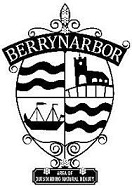
FROM THE PARISH COUNCIL
Berrynarbor Parish Council
Chairman - Adam Stanbury [882252]
Gemma Bacon [883341]
gemmabacon@berrynarborparishcouncil.org.uk
Adrian Coppin - Vice Chariman [882647] Mill Park Touring Site, Mill Lane, Berrynarbor, EX34 9SH
adriancoppin@berrynarborparishcouncil.org.uk
Bernadette Joyce
bernadettejoyce@berrynarborparishcouncil.org.uk
Lesley Lowe
lesleylowe@berrynarborparishcouncil.org.uk
Jenny Beer [882171]
jennybeer@berrynarborparishcouncil.org.uk
Martin Johns
martinjohns@berrynarborparishcouncil.org.uk
Jody Latham
jodylatham@berrynarborparishcouncil.org.uk
Nicholas Wright
nicholaswright@berrynarborparishcouncil.org.uk
Parish Clerk - Ms Sue Petters - clerk@berrynarborparishcouncil.org.uk
Rose Cottage, Higher Slade, Ilfracombe, EX34 8LH.
County Councillor - Andrea Davis andreadavis@devon.gov.uk
District Councillor - Joe Tucker Frederick.tucker@northdevon.gov.uk
Adrian Coppin - Clive Richards [882647]
The Roadmap out of Lockdown is very much on everyone's mind. Berrynarbor Parish Council is waiting for confirmation on when we can start meeting in person again but it may take a while still. In the meantime, just a reminder that all the meetings, agendas and minutes are published on the website at https://www.berrynarborparishcouncil.org.uk/ . Anyone is always welcome to join the virtual meetings via the zoom link printed on each agenda and we look forward to welcoming everyone back face to face in due course.
Spring is also around the corner and Berrynarbor Parish Council is inviting Tenders for the grass cutting, garden maintenance and footpath clearance for 2021 - 2022.If you are interested in submitting a tender, please contact the Parish Clerk for the Tender Application Pack. Completed tenders must be received by 5.00 p.m. on Friday 2nd April 2021.
"Lifestyle Spring Clean Week" took place from 12-21 March in response to the national climate emergency declared across the UK by local authorities. You can still sign up for Carbon Savvy's tips on reducing your carbon footprint at www.carbonsavvy.uk/findyourfootprint.
Residents and businesses are currently being invited to have their say on the draft Resource and Waste Management Strategy for Devon and Torbay. The Public Consultation runs from Wednesday 3rd March to Wednesday 14th April, and the responses will help shape how local authority collected Waste is managed in Devon up to 2030. The strategy and to give your view can be found at https://www.devon.gov.uk/haveyoursay/consultations/draft-resource-and-waste-management-strategy-for-devon-and-torbay/
If you would like further information, please email: waste@devon.gov.uk. Should you need any guidance or an alternative format, email with details of any preferred format and the assistive technology you use.
And finally, Covid-19 local information, including the number of confirmed cases throughout Devon, can still be found on Devon County Council's website: https://www.devon.gov.uk/coronavirus-advice-in-devon/. Berrynarbor is a very safe place to live but please do follow the Covid-19 guidelines, take care and stay safe.
Sue Petters - Parish Clerk
15
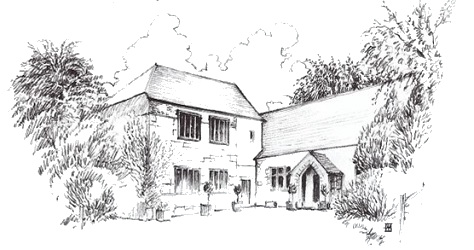

Disappointingly Hall news continues to be sparse as once again it comes during lockdown and so we continue to be shut. Light is, of course, hopefully at the end of the tunnel and so we very much hope to be welcoming groups and bookings back into the hall over the next few months.
In the mean time we'll be spring cleaning inside and out, and giving the kitchen a fresh coat of paint.
We hope to make our Summer Fete in August an extra special village event, so as we start to organise it, we should love to receive ideas on how we can do this and make the day enjoyable for all ages in our community. Please contact us if you have thoughts on this and or if you would like to offer help on the day - any help would be very much appreciated
Best wishes to you all from the Hall Committee
Julia
Fairchild
- Chairman [882783]
Alan
Hamilton
- Treasurer [07905445072]
16
CROSSWORD CORNER
Dave Beagley

Solution in Article 45.
Apologies to Puzzlers: For some unknown reason the format of the crossword in the February issue doubled up on one line, causing a bit of confusion!
Ed
17

18
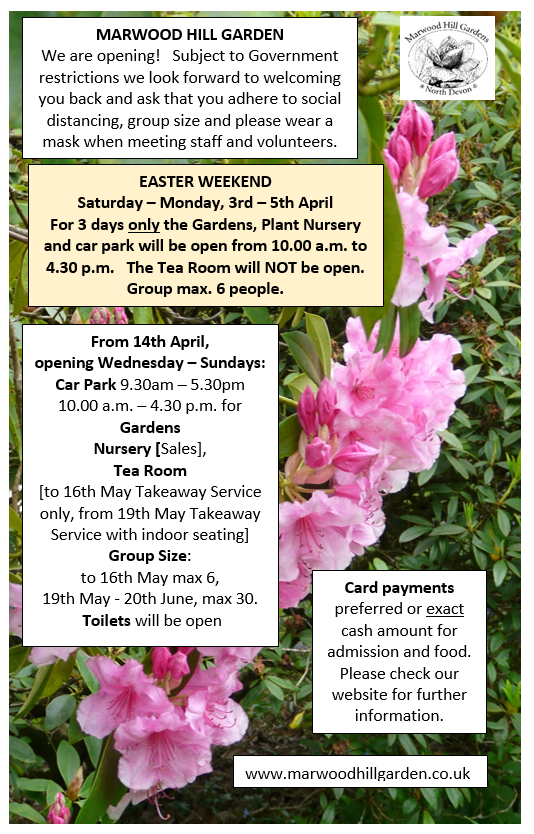
19
NEWS FROM BARN COTTAGE
Wendy, Berry in Bloom, suggested it might be a nice idea if we write to introduce ourselves and let people know what's going on at Barn Cottage and why we moved here from Combe Martin.
We are: Sal, Chris, Dan and Oli plus Ringo and Buster, rescue dogs from Spain, and Tilly, Lola and Dora, rescue cats from Combe Martin.
Dan and Oli, who have a rare genetic condition called Laurence Moon Bardet Biedl Syndrome, attended Berrynarbor Primary School, and loved the safety, friendliness and inclusivity the school afforded them, and would ask why we couldn't live there. At that time, there were many reasons, but we always said that if an opportunity arose, then we should endeavour to make that wish possible.
Fast forward 11 years, and it was time to make some long-term decisions about Dan and Oli's future, and what that would entail, as part of their condition means they have learning difficulties, communication difficulties and will need support throughout their lives to allow them semi-independence and quality of life.
Our choice was, they go into supported or residential living, neither of which they wanted to do, or we make something happen for them in their community, in an area they know and love, with some of the skills they have acquired along the way.
We have fought long and hard for them both to remain in mainstream education, socially active, and achieving small but precious goals. This has been achieved formerly with help from Sue Carey and her wonderful team at Berrynarbor School, then Carmel Ball and her wonderful team at Ilfracombe Academy, and now the kindness and generosity of spirit from the villagers here in Berrynarbor. Seretse has them walking at least 12 miles every Thursday and has a cunning plan to potentially build a boulodrome, through the appropriate channels obviously.
Barn Cottage came on the market and we fell in love with it and although we never knew Kathy, we feel like we do through Carol, her daughter, who has become a friend and wonderful neighbour.
Everyone has been so supportive since we bought the property, particularly our neighbours in the Sterridge Valley, who rallied around to get us in before Christmas. Never have I felt so grateful to individuals such as Dan and Denny, and Ruby, who worked tirelessly on moving-in day, we couldn't have done it without them. Neighbours offering to help out with Dan and Oli, or collect shopping or cook, we feel overwhelmed by people's generosity of spirit, so thank you.
Looking to the future, we plan to use the polytunnel to grow the plants for Berrynarbor in Bloom's hanging baskets, with Dan and Oli at the helm, and can only hope we get asked to do them again next year. Thank you, Judie, for thinking of Dan and Oli in the first place and suggesting it. We shall give it a go and can only encourage the boys to take these opportunities and experiences to grow and learn, and feel they have a place in the world, because they've certainly been made to feel they have a place in Berrynarbor. They feel safe, happy and excited about their future, and that's all any parent hopes for.
Sal
P.S. Sorry for the mess, building site and holdups of traffic over the past year . . nearly finished . . . Yay!
20

BERRY IN
BLOOM
'Spring
has Sprung'
At the time of writing, it is the most glorious sunny spring day and there is hope on the horizon as we slowly come out of lockdown 3. Never have we needed the sight of a golden daffodil more!
We have been informed that there will be a Britain in Bloom competition this year and we have started preparing ourselves to go for GOLD once again. We think Berrynarbor is the best little village in the South West, let's hope the R.H.S. Judges do too.
For the last 10 years or so our hanging basket displays have been done by Streamways nursery in Georgeham, when they sold the nursery they still did ours privately. Their baskets have been wonderful and we are sad to lose them, but wish them a very happy retirement.
However, we are extremely lucky that Dan and Oli have moved in to the Sterridge Valley and with their family have set up a poly-tunnel and have agreed to plant up the baskets for us.
Welcome to Berrynarbor to the whole family and good luck with your new venture. We love the idea of keeping things local and all helping each other. They have informed me that they are happy to re-fill baskets for anyone else in the village.
Hopefully we shall gradually be able to get back to normal and we hope the sight of a few cheerful flowers around the village should help.
Wendy Applegate
21


Wendy Applegate
22
IRISH [AND OTHER] TALES - 3
There are a number of tales related to Pam's bakery in Rathmullan. Late one afternoon a man from along the coast came in and asked for a meat pie. "I'm sorry" said Pam, "We have sold out, but if you will walk on the beach for about three quarters of an hour, I'll cook you a quiche".
That was fine. We later learned that when he got home and told his wife that there was no pie, but he had brought a "kwtich or something"; she said, "That's all very well, but do I put tatties or custard with it?"
Pam made a very popular sweet called a vacherin. This was two rings of meringue filled with chocolate and almond flavoured whipped cream. There was a 'society lady' in Letterkenny, some 15 miles away. Every month she would hold a bridge party, and her husband had to drive 30 miles to collect a vacherin for her guests, and a further 30 miles next day to return the platter that it was served on. She never revealed the source of the sweet, until, we heard, she was asked for the recipe. Her son of eleven, not wishing to let his mother down, made something up. Unfortunately, it was not quite believable!

We were there during the height of the troubles, but in spite of the fact that the factory was part of an English company, and that 5 of the 7 top management were English or Northern Irish, we only once had trouble.
You might remember that there was a top IRA man called Bobby Sands. He was imprisoned and starved himself to death in protest. He was well respected in the Republic because he had never killed anyone. On the day of his funeral, the IRA ordered that every shop and every business in the republic would close. Our factory ran 24 hours a day, 365 days a year. If it stopped, all the work in progress would fail, and it would cost thousands of pounds and literally days to clean it up and re-start it. All the shift workers on for that day promised that they would come in. On the day, they came in early, but 15 or so minutes before the shift change was due, a big black car with four 'heavies' in it and a black flag on the front, pulled up at the gate. The entire incoming shift, for their own safety, drove by and the staff had to shut the factory down.
That day, one of the local shopkeepers said to Pam, "Did you know that the IRA have told us all to close?" "Nobody has told me" Pam said, and she stayed open. At about 3 o'clock, a car with a black flag and four heavies in it drew up. All four of them crowded into the shop, which was very small, and trying not to feel nervous Pam said, "Can I help you gentlemen?" "Ach" said one, "You're English! Can we have four of them wee buns?" They bought them and left. Pam was very relieved!
When I was a youth, I was fascinated by flying. I always wanted to pilot an aircraft, but to be a professional pilot wasn't in my line as I was part of a family of scientists. Also, to be an amateur pilot was both expensive and time consuming.
For most of my life, I had neither the time nor the money to follow my interest. However, in my thirties, I did join a gliding club at Coventry Airport that was just a couple of miles from my house. I had only just joined when the airport wanted to become more commercial and threw out the club. That went to a small airfield some 30 miles to the east, a good hour away.
When I went, I would get there approaching 10 o'clock on a Saturday morning. You could not book a flight until you got there, so I was in a queue. At about mid-day, I would get towed up to 2000 feet and dropped off. There was no up-current, so I knew that after a couple of circuits, I would be down on the ground in seven and a half minutes. I could not book another flight until I was down, so that flight would be at about four o'clock. For two hours motoring and a day hanging around to get 15 minutes in the air, it was hardly worth it! I did join a week's instruction at the airfield, staying in some very basic accommodation, but I only got 7 flights, and never went solo, so I gave up!
During the last summer of our time in Ireland, a man with a Cessna opened an air-strip on the West coast of Donegal, near Bunbeg, about 35 miles from Rathmullan, and started to give flying lessons. Two or three times on a Sunday morning we drove there across a 'bog road' (very uneven surface and anything but straight or level) to get a lesson. Pam came too to get a lesson, but because the weather was so poor, by the time I had had my flight, it had closed in, and she never got her turn at the controls!
I think it was on the second lesson he said, "Go down to about 500 feet and fly along the coast line. We had a trawler sink, and we still haven't found all the bodies!" I did, but we saw nothing. I don't know if they ever found the others!
He was very hospitable, and after we were rained off, he would say "Come in for a jar." He lived in a converted railway station. The rails were gone, but the platform was still there. The ticket hall was now his kitchen, the general waiting room his lounge, the lady's waiting room now a bedroom and the gents' room the bathroom. On the platform there was a time-table for the local bus that was still timed to meet the trains that had last run in 1935! We would have a jar, always whisky, followed by a snack lunch and chat until late afternoon.
He gave me one of my best Irish stories. "I was driving home on a dark frosty evening," he said, "And I came round a bend to find a Guarda checkpoint demanding my licence. I skidded to a stop with some difficulty. Formalities over I said, "Sergeant, do you not think it a bit risky to have your checkpoint so close to the bend?" The sergeant looked back and he said "Ah, but it is a very straight bend!" And I looked back -- and he was right!"
[To be continued]
Alex Parke
23
EASTER CHICKS

Let me introduce you to Sugar, one of our Lemon Millefleur Sablepoot bantams. Hatching a day too early, our special care baby had a shaky start in life but courageously pulled through. Her sibling hatched on the due date so was strong and robust. Together they grew up as Sugar and Spice. Brother and sister. The sweetest, tamest, cheekiest chicks.
Spice matured into a handsome, if a little too vocal, cockerel. Sugar looked as cute as can be . . . then suddenly, at the eleventh hour, she started cockadoodledooing! She had transmogrified into a cockerel!
So our little flock of hens are looked after by Spice, the wing commander, who runs a tight coop; fair, yet strict. He keeps a look out for prey, keeps a keen eye on the pecking order, points out the good bits of food to the hens and rounds them up at night.
Sugar, by contrast, the more inferior flight lieutenant, enjoys a more relaxed position. He likes cuddles from everyone that comes to Higher Trayne, but especially from Mr. Poore, the self-styled Air Chief Marshal of the Flock. But Sugar's favourite pastime is dancing round the hens. If they have laid an egg or he generally wants to impress one of the girls, he fans out his off-side wing and makes little dancing steps in a circle around them. What a magical sight! You've just got to love this little fella! Sugar and Spice, we love you!
Ally - Trayne Farm
24

25
LEARNING ON THE VOLUNTEER JOB
Two years into reworking my mother's untouched-in-30-years garden, when plant collecting was underway and the cleared ground covered again, a nearby privately-owned garden, open to the public, was looking for volunteers. From first visiting in 1967, Marwood Hill Garden has become a place of special tranquillity and beauty for me as it continues to be for great numbers of people who are drawn to open gardens. Its rural setting in a valley, previously farmland, invites the trees and plants to nestle into nature while a stream and three lakes have added immeasurably to the character. Watching the Garden's gradual growth into a botanically important arboretum and collection of mostly rare and unusual shrubs and perennials meant that each annual visit offered more wonders. When my visits became year-round by volunteering one day a week, I felt very privileged to experience the whole gardening year from working at the potting bench and in the beds and borders.
Succession is an important and absorbing part of gardening, always looking to the seasons and years ahead with the aim of creating interest every month and ensuring that the garden always develops. Gathering your own seeds and finding more in the seed catalogues is one of many starting points. Sowing under glass or on window sills from, say, mid-February to April hopefully means seedlings are ready for pricking out into trays from March onwards. Most perennials will flower in the second year so one potting up of small plants means that they become sturdier and can be ready for planting out 12 months later. At Marwood seeds such as Primulas though perennial are sown every year to increase numbers in the garden and for sale; seeds which will flower only once, i.e. annuals, are too time-consuming when 20 acres need tending and at home I limit annuals to a few favourite 'can't do withouts'.
Many established perennials clump up after a few years and need dividing. This restores vigour and again the number of plants is cheaply increased both for the garden and for sales or for swaps and presents. Autumn is the best time but with warmer soil Spring is also feasible, while prolonged wet and cold are not suitable conditions in which to disturb the roots and any new growth. One of the major Autumn tasks at Marwood, every 4-5 years, is lifting Astilbes, the garden's 'signature plant'. From September onwards, small divisions with 2-3 dormant buds and a piece of root are potted up and left outdoors all winter. By about April, they are ready for potting on to encourage flowering in mid-summer. The number of Astilbes propagated at Marwood is astonishing! It's the home of a National Collection of nearly 200 varieties under the aegis of the national conservation charity Plant Heritage, so there are many to choose from including some rare ones which are only available to buy at the Garden or via its website. Astilbes at Marwood are mostly planted in damp soil near the lakes - where they make a sensational sight - but there are some which will grow well in drier areas.
For many years the Head Gardener would fill a car with pots and head for the two North Devon Plant Heritage Plant Fairs held at RHS Rosemoor. I enjoyed going along to help with sales and to promote the Garden to visitors as well as snatching lunch-time walks in glorious Rosemoor. After a few years, I also went to help at the PH promotion table at the two Plant Fairs in South Molton Pannier Market. These were all occasions when, even though buying plants nearly every week at Marwood, I gained the reputation of buying rather a lot more! At least 20 Nurseries from the South West attended regularly and, as I came to know the stall-holders, they were helpful in recommending plants which would grow well in my frost-free windswept coastal garden. This broadened my horizons as most of these had their origins in the temperate climates of the Mediterranean, Chile, South Africa and Australasia and, sure enough, they have thrived here. All public events are on hold of course but we look forward to more Plant Fairs later in the year. Latest word is that there will be a Marwood stall at the May 8th and 9th Plant Fair.

Winter is when the wholesale plant catalogues are scoured for interesting new introductions to add to the herbaceous areas of Marwood. These arrive in plugs in the early months and keep a team of volunteers very busy at the potting benches, transplanting first into small pots and then larger ones. Taking cuttings from a variety of shrubs is mainly a July/August activity, potting them on the following year. There are also visits to specialist plant fairs and nurseries or to websites to acquire a few new shrubs each year. Trees such as Camellias and Magnolias, including those named at Marwood, are best grafted which happens at a specialist propagating nursery in Cornwall. They can be grown from seed but it's a long wait until flowering and growth into a sizeable tree. The Williams family at Caerhays Castle, Cornwall, employed both George Forrest and Ernest Wilson as planthunters in China at the end of the 19th century. Magnolia 'Marwood Spring', planted in 1968, is a seedling from a garden in Porlock which in turn was a seedling of the original plant brought back to Caerhays by E.H. Wilson and named M. sprengeri,var diva. In 2019 it was 17.7m in height with a girth of 270 cms and, as it has matured, so the blooms have deepened in colour to a glorious plum purple. It is one of 20 Champion Trees at Marwood, i.e. measured for the Tree Register of the British Isles as the tallest and/or having the greatest girth.
The plants which Dr Smart introduced were rare or had particular garden value. They were from seed or were very young plants in order to give them the best chance of establishing well. It was and remains a gardener's garden: no short cuts. Many seeds and other small plants arrived (under licence) in his suitcases returning from visits to his nephew, Dr John Snowdon in New South Wales - now Marwood's owner. The handsome stand of Eucalyptus is a central and eye-catching part of the result of those travels. A visit to the USA inspired Dr Smart to start what became a large collection of Camellias. Attending RHS Shows and other main horticultural events, sometimes combining this with successfully exhibiting Camellia, Magnolia and Rhododendron blooms, he soon became highly regarded in the network of professional and keen plantspeople around the world. A wonderful aspect of gardening, as we all know, is the sharing of knowledge and experience - as well as swapping seeds and plants. Marwood has become home to a fascinating collection of plants and, by every account I've heard, its peaceful and natural setting uplifts the spirits and provides deep inspiration to visitors. I miss being there regularly. It became the place where I learned so much from the gardeners but, as the years slowed me down, I had to acknowledge that it was time to retire and tend fully to my own garden.
BS - February 2021
26
COMBE HOME CARE
It's been a tough past twelve months for everybody. The Combe Home Care staff have been working hard in difficult conditions in the knowledge that those for whom we provide a service rely on us and need us to keep going. Starting out as a small family business in 2018 when we used our experience in care, business and volunteering in the community to form a fully registered care company. Kerry has over twenty years' experience in care, from carer to manager in care homes of growing sizes as well as running mental health and learning disabilities services.
We have a well-trained group of amazing staff who really do care about their work. We try to keep continuity with our carers so they can build a good relationship with our clients and get to know their individual needs. We look after every client as if they were part of our own family and our service users and staff are our top priority. We are fully Covid compliant and registered with The Care Quality Commission we can help with many areas big or small, any age, including, mental health, dementia, personal care, companionship, respite, sleeps, shopping, escorting to appointments etc.
At Combe Home Care we think that there's no place like home - that's why we like to ensure the standards of our care are second to none. We encourage and support those to live as independently as possible providing it's safe to do so. Our care team specialises in providing dependable, trustworthy, high quality home care for private individuals, local councils and other organisations. Applying our recruitment standards, we select only those support workers with special skills and qualities needed to provide the peerless level of care our clients have come to expect.
Whether it's an occasional visit for companionship whilst loved ones are away, a rehabilitation session to enable you to go back home or permanent care, our flexible packages are carefully customised around the specific needs of the individuals our team member's support. Whatever the frequency and level of our carers' involvement, the Combe Home Care name is a guarantee that it will always be consistent, appropriate and a thoroughly rewarding experience for each and every service user.
If you, or someone you love may need a helping hand, especially during these times, please do give us a call. We can talk you through the options, whether large or small, guide you on any available funding and our staff will make sure you get all the help you need.
Tel: 0787610989 email:contact@combehomecare.com.
Kerry & Daniel Turton
27

CHILDHOOD LITERATURE
"Ma sighed gently and said, "A whole year gone, Charles!" But Pa answered, cheerfully: "What's a year amount to? We have all the time there is."
This quote, almost relevant for today, comes from Little House on the Prairie, one of the eight Little House books by the American, Laura Ingalls Wilder, based on her childhood experiences in a settler and pioneer family.
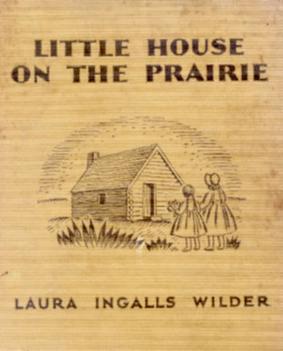
Little House on the Prairie - First edition cover
By Helen Sewell (illustrator) - Public Domain
via Wikimedia Commons
"Everything from the Little House was in the wagon except the beds and table and chairs. They did not need to take these, because Pa could always make new ones."
Laura Elizabeth Ingalls, the daughter of Charles and Caroline Ingalls, was born in Pepin, Wisconsin on the 7th February 1867. She was the second of five children: Mary Amelia [1865], Caroline Celeste [Carrie] [1870], Charles Frederick [1875], who died nine months later in 1876, and Grace Pearl [1877].
Over the next few years, the family made many moves, settling in Kansas, again in Wisconsin, Minnesota, Iowa and De Smet in South Dakota, where her parents and Mary remained for the rest of their lives.
Once settled there, Laura was able to attend school, had several part-time jobs and made friends, one of whom was a bachelor settler, Almanzo Wilder.
In 1882, Laura took up a teaching post, admitting later that she didn't enjoy teaching but felt a responsibility to help the family financially. Between 1883 and 1885, she taught, worked for the local dressmaker and attended high school, but did not graduate.
Laura's teaching and studies ended in 1885 when she married Almanzo Wilder, ten years her senior and having achieved a degree of prosperity, the couple were able to start their life in a new home north of De Smet. In 1886, their daughter Rose was born, followed three years later by a son who sadly died 12 days after birth and was never named. On his grave he is remembered as 'Baby Son of A.S. Wilder.
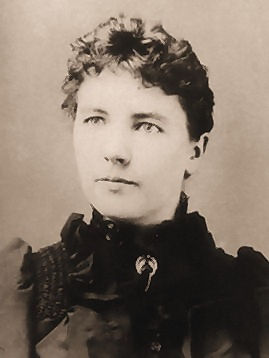
Laura Ingalls Wilder, circa 1885
Unknown photographer
Public domain, via Wikimedia Commons
In the early days of their marriage, life was far from easy. Following complications from a life-threatening case of diphtheria, Almanzo was partially paralysed but although eventually regaining nearly the full use of his legs, always needed a cane to walk. Then followed the death of their new-born son, a mysterious fire that destroyed their barn with its hay and grain, their home from a fire accidentally started by Rose, several years of drought, leaving them in debt and unable to earn a living from their 320 acres of prairie land. After these tragic events, they spent a year recovering with Almanzo's parents, followed by a brief and unsuccessful spell in Florida, hoping that the warm climate would help Almanzo's health, returning in 1892 to De Smet.
Two years later they moved to Missouri and into a ramshackle log cabin they named Rocky Ridge Farm. Over the next 20 years, with financial help again from Almanzo's parents, and sheer hard work, what began as about 40 acres of thickly wooded stone-covered hillside with a windowless log cabin, became a relatively prosperous poultry, dairy and fruit farm and a ten-room farmhouse. Laura was recognised locally as an authority on poultry farming and rural living, which led to her being invited to speak to groups in the area.
Her writing career began around 1911 when she became editor and columnist in the Missouri Ruralist, a position she held until the mid-1920's. While the Wilders were never wealthy until the Little House books began, her income from writing, the farm and Farm Loan Association, which she set up, provided them with a stable living.
During the 1920's and following her marriage, their daughter Rose Lane became involved, encouraging Laura to write, something she had successfully achieved herself. However, the Stock Market Crash of 1929 and the Great Depression wiped out the Wilders, although they still owned the 200-acre farm.
Pioneer Girl, Laura's first-person account of her childhood on the frontier was completed at about the same time, edited by Rose, but no publisher was interested. Refusing to become discouraged, Laura's 'I' became 'Laura' as well as writing specifically for children and including the whole family's experiences, success was achieved.
At the age of 65 in 1932, the first of Laura's eight Little House books was published, the final one published in 1943 when she was 76. By that time, she and Almanzo had sold off the majority of their land and livestock, continuing to live on the remaining 70 acres of Rocky Ridge. Here, Almanzo, or Manly as she called him, died in 1949 at the age of 92. For the next eight years she lived there alone, looked after by friends and neighbours. She also died there, aged 90, on the 10th February 1957. She was buried beside Almanzo at Mansfield Cemetery, and Rose, who died in 1968, is buried next to them.
Following her mother's death, Rose Wilder Lane edited her mother's diary, the resulting book On The Way Home: the Diary of a Trip from South Dakota to Mansfield Missouri in 1894, was published in 1962. Twelve years later, the long-running television series based on the stories, began, and the popularity of the books continues today.
Judie Weedon
28

29
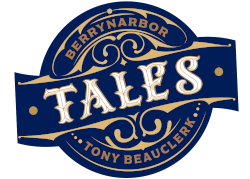
THE FIND
Fred and May were a young couple living in Brentwood in a small rented house. Whilst Fred worked as a carpenter, May stayed at home looking after the house. One day Fred arrived home with a settee. One of his customers had given it to him as they no longer had room for it.

"I'm going to re-upholster it on Saturday afternoon," he said.
Saturday afternoon duly arrived and he got out his tools to start work. He had only just removed half of the covering when he opened his eyes in amazement, it was largely stuffed with paper money!
"Look
at this!" he cried to May.
"It's
extraordinary," she replied, "What are we going to do with it?"
"Well,"
said Fred, "I'll buy you the fur coat I always promised you."
They went to the shops the next day and bought a coat. May looked grand in it. Nevertheless, there was still quite a bit of money left over.
"I know," said May, "What about a little puppy?"
They went along to the pet shop and jokingly, Fred said,
"I'd
like to buy a wasp."
"We
don't sell wasps," replied the owner.
"Well
you have one in the window!"
Anyway, they bought a little pup which they called Rover. He stayed with them a long time giving them both great pleasure and leaving them with many happy memories in the years to come.
They say "A dog is man's best friend!"
Illustrated by: Paul Swailes
Tony Beauclerk - Stowmarket
30
The end is in sight or so we've been told.
Soon friends and families, we can hug and hold.
As the vaccine is rolled out and we each take our turn
What are the things you look forward to, what do you yearn?
A drink in the pub without a substantial meal.
Getting together with friends- meeting for real.
Being allowed to have a party inside or out.
Holidaying again, getting out and about.
Browsing in shops; being able to wander.
Being able to touch goods, take time and ponder.
These are my thoughts what about yours?
For some it may simply be going outdoors.
For others it may take time to feel 'normal' again
Continued anxiety some may not feign.
Whatever your thoughts, as isolation comes to an end
Let's continue to support each other, neighbours and friends.
Oh, there's just one last point I should like to make
Keep supporting our Village Shop for goodness' sake.
Karen, Annie and Susan have been amazing throughout.
Our ability to get supplies, thanks to them, was never in doubt.
Thank you for staying open and being there, each and every day.
Ok. Now on the subject of Covid 19, I have nothing more to say!
Pam Robinson

Illustrations by: Paul Swailes
31
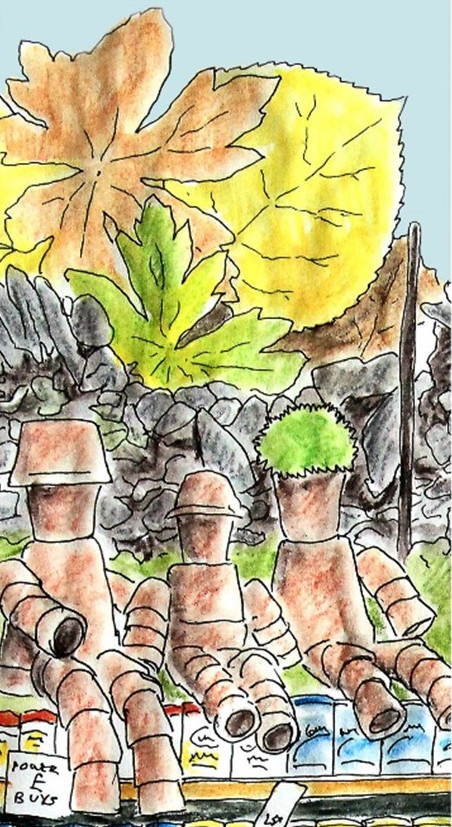
We arrived in September
Warm autumn days full of colour
Before October rain and wind set in
And November locked us in
There's lot to do here
In the house and garden
We find good people to help
With trees, a plumbing problem
building improvements
And a fallen wall
Most days I walk
Greeted by
Cheerful smiling faces
And friendly [mostly] dogs
. . . And Flowerpot people
We meet kindly neighbours
And are sustained by
the friendliness of the shop
So well stocked and organised
And everywhere around the village
Water is running and rushing
Gushing from pipes
Flowing from fields
December arrives
and little painted wooden Santa faces
appear outside houses on fences and walls
Christmas comes and goes
Without the usual social events
But with amazing light displays
Winter pansies and button daisies bravely bloom
Birds crowd around the bird feeder
And in January's harsh lockdown
everyday a new flower opens
Every day a new bird song is heard
Snowdrops come at last
And the first daffodils
February opens crocuses, primroses
miniature flags and grape hyacinth
And then freezes
With a fierce easterly wind
Warm weather follows
At last as the days lengthen
More flowers - and blossom now.
We are glad to be here and wait for spring
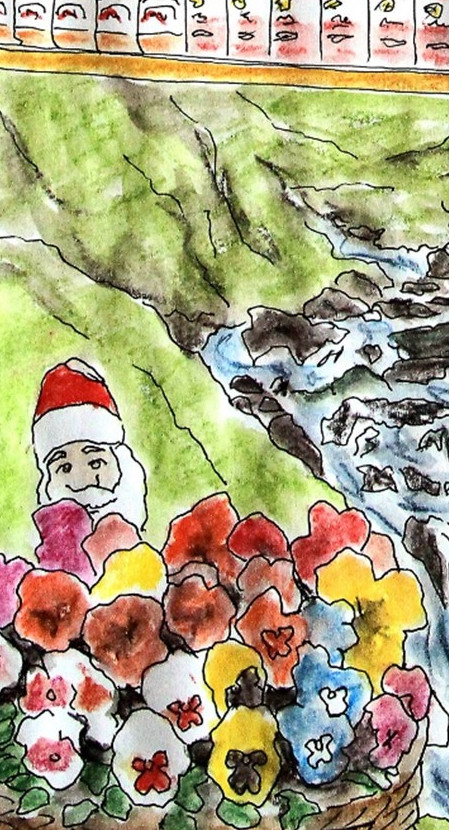
All illustrations by: Paul Swailes
Virginia Evans - Lee Copse

32

33

BERRYNARBOR WINE CIRCLE
Age is
just a number. It's totally irrelevant unless, of course,
you
happen to be a bottle of wine.
Joan
Collins
Like many activities up and down the country, Berrynarbor's Wine Circle is hoping to restart soon; however, our season, usually, begins in October. We shall keep to the usual and restart, with EVERYTHING crossed, on Wednesday, October 20th at 8.00 p.m. The Manor Hall will provide a warm welcome to everybody, no matter what their 'age'! It will be good to taste wine, chat and laugh with others again.
Until then, we play our part and stay at home, grabbing exercise when and where we can and socialise with our husbands, partners or in bubbles with whomever! Bubbles may abound when we are all free to ignore Zoom and go our very merry way!
I asked you a few questions in the first Newsletter of this year and here are parts of the questions, to remind you, then the answers.
- Sherry wine is left in barrels to oxidise, with a thick white layer of yeast . . . This is True. The yeast is called flor and is vital to sherry production.
- Which three grape varieties are used for Champagne? Most widely used are: Chardonnay, Pinot Noir and Pinot Meunier.
- Red wines are better drunk with cheese rather than whites? Many, including me, enjoy a glass of red when eating cheese; however, cheese blocks tannin receptors on the tongue, making red wines taste sweet and masking flavours. White wines can often be a better match.
- As well as Chardonnay, what other white grapes are grown in Burgundy? The answer is Aligot.
- Glayva is made with Scotch whisky, herbs . . . and which type of fruit? Seville oranges, yes, those associated with marmalade making, are used for this liqueur.
Judith Adam - Promotional Co-ordinator
34
CLAUDE'S GARDEN
The three seats in Claude's Garden were becoming unsafe and have now been replaced by Ivor's and our families.
Claude Richards, my uncle, farmed Hammonds and Twitchen. He lived at 54 The Village and the Garden was the kitchen garden for the cottage. On his death. he left it in perpetuity to the village in memory of his parents Fred and Emma.
Claude loved Berrynarbor. He had a milk round - in the days when milk was still delivered in glass bottles - and also made and sold cream. He was a Parish and District Councillor and for a short while a County Councillor.
He was always very involved in village activities, helping to MC the summer dances that were held in the Manor Hall and the Christmas Parties held for all the children living in the parish under the age of 15, among other activities.
As we are gradually returning to normal, take a short walk with a friend, sit on one of the seats and appreciate the unique view over the village which is there for all to enjoy now and for generations to come.
Jill Sidebottom
35

36
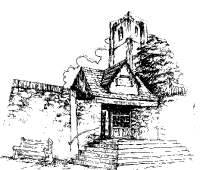
VICAR'S VIEWS
Happy Easter from St. Peter's Berrynarbor
Easter is the season of Good News! It is the season where we celebrate the death and resurrection of our Lord Jesus. Celebrating a death can seem like an odd thing to do on the face of it but Jesus's death was no ordinary one. It was a death that defeated evil, that stared death and sin in the face and beat it at its own game. It is the death that has saved and given hope to all who have a lived faith in Jesus, a claim that billions across the world believe and celebrate. If you are one of these then you already know the impassable joy that this brings, and if you're not, don't let another Easter pass you by without taking a genuine look at the life changing truth.
There are many resources to help you explore but I suggest 2 places to start.
- Read The Gospel According to Mark, from the Bible. If you don't have a copy you can access it for free on the internet [biblegateway.com].
- The Case for Christ by Lee Strobel. Lee was an investigative journalist who tried to disprove Christianity and in doing so realised it was true. Join Lee as he looks at some of the evidence for the historical death and resurrection of Jesus.
In light of this I am also pleased to say that Church services are now back in person, every Sunday at 3.00 p.m. Although the same limitations are still in place as were before, it means that we can be together as we celebrate the seminal moment in history that brings the greatest gift and joy for us today! I hope you can join us.
As always, for the latest information, please check our Facebook page or website: combetocombechurches.co.uk
This Easter, may you know the truth and peace that only comes through faith in our Lord Jesus.
Rev. Peter
37

38

39
BAILEY'S BLOG

Thought I would chat this month about friendship. Well, they do say 'A dog is man's best friend'. It has also been said that a good friend is someone who thinks that you are a good egg even though he knows you are slightly cracked!
The Mr. and Mrs. have made some good friends in the short time they have lived in the village . . . not sure those friends have found their cracks yet or realise how crackers they are, but I often hear them comment what a wonderfully friendly village this is [despite them being blow-ins] and what great friends they have made. I, too, have made some good ones.
You know already that certain local humans have become great friends, but what of my four-legged friends; those who are more like-minded and share my interests? We don't waste time with small talk, taking time to get to know each other, like you humans. A good sniff of each other's bits and we just know. [Too much information? Sorry! But you know me by now . . . I say it how it is.] Anyway, let me tell you about a few of my besties.
Stringer - probably the first friend I made. He's great fun. Tall and very friendly. He likes food and can sniff a pasty from quite some distance. I love playing with him although I am not always sure if he is really interested in me or if it's the Mrs. who is the attraction, especially when she has treats in her pocket!
Then there's Ralph - respect where respect is due, he is a moody character who is incredibly strong. He didn't used to like me and my annoying puppy ways, but he endures me now and actually seems pleased to see me. Well, he nearly pulled his human over to rush over to greet me the other day. I do need to work hard to keep his attention though as he seems to have an eye for River these days more than me.
River - she's the new kid on the block. A youngster who seems to be growing at the rate of knots. She seems to get taller every time I see her. She's a real cutie who gets lots of attention from everyone! Storm has been teaching her how to behave. He is a little over-protective on occasions but is very, very sensible. The Mrs. frequently says she wishes I was as well-behaved as Storm, but hey I'm me . . . get used to it!
One of my newest friends is Dougie - another gentle giant. He is huge but such a big softie. Apparently, he is a Newfoundland. I don't really pay much attention to those labels.
There's
Sharon's Dougie and Derek too, and Twiglet and Lottie and Poppy and Daisy. I
am very lucky having so many great mates. There are a few I have yet to win
over but hopefully they will fall for my charms soon. That being said, I
think Dora may be a lost cause . . . she just doesn't recognise a good thing
when she sees it! Mind, she has those other friends to play with in that
field of hers. I would really love to get to know them. There's a lot of
them around this area. They all hang out in the fields together, never on the
lead. They look so much like me I am sure we would have great fun together.
They never bark at me; just stare and make a weird "baaing" sound. If only I
could get in to chat to them. Strangely though, neither the Mr. or Mrs. will
let me near them. What do you reckon to my chances? Maybe one day? . . .
40


41
URANIA MALCOLM & FAMILY
The Old Court, Berrynarbor
There have been several interesting people living in Berrynarbor in the past and whilst researching my Grandmother in Altrincham, Cheshire, where I was born, I came across this reference from the archives of St. John's Church there. The Rev. Napier Malcolm [17.3.1870-19.10.1921], who was Rector there in the early 1900's, went with the Missionary Society to Persia. Whilst there, he met and married Urania Latham. Now the Berrynarbor connection.
When he died in 1921, she returned to England with her children and some time after arriving back, settled in Berrynarbor at The Old Court. This intrigued me, so I started to see what I could find out about her.
She was born in Derbyshire on the 30th March, 1870, and trained as a Doctor. She was also a brilliant chess player and won the North of England Women's Chess Championship at some point. She became a missionary and her medical qualifications were invaluable because at that time it was against the culture for women to be examined by a male doctor. Her eldest child. a daughter, died on the way home to England. Another daughter, Helen, who was a graduate from Oxford where she read English is, along with her mother Urania and sisters Agnes and Jane, on the 1939 Census at The Old Court.

The Old Court c1904-8
from the Tom Bartlett
Postcard Collection

Urania with Baby George
Helen seems to be the owner. As it is a guest house there is a Mary Heron - retired teacher, Ronald Vallance - caretaker - and John Vallance [perhaps his son] aged 13 at school. They were also confectioners and cake makers.
Jane Malcolm, the twin sister of Agnes, trained as a nurse and during the War went with the Queen Alexandra's Imperial Military Nursing Service to the Middle East. She died there on the 1st October 1942 of an accident aged 33, and is buried in the Moascar War Cemetery, Egypt, but her name is on the War Memorial in Berrynarbor Churchyard. At that time, it was not the custom to remember women on war memorials.
Urania died on the 10th January, 1952, in Berrynarbor and is buried in St. Peter's churchyard together with her daughters Agnes [15.1.1909-0.1963] and Helen [16.8.1905-8.11.1971] and her son George [24.2.1903-30.5.1989]. and the Reverend George's wife, Hilda Duckworth [31.10.1901-24.7.1986], who had connections to Weston-Super-Mare.
So, from 1921 when they arrived back until the 1939 Census, I have no information, and do not know when or why they settled in Berrynarbor when they originated from the North of England. Berrynarbor then, as now, cannot have been that well known.
Maybe the connection to Weston-Super-Mare is the link. Someone in the village may know.
So, just one of those coincidences which crop up when you are looking for something else!
Jean Constantine


The grave, St. Peter's, inscribed on both sides of the gravestone
42
ROWENA CADE
[2 August 1893 - 26 March 1983]
Creator of the Minack Theatre, Porthcurno

Rowena Cade
By unknown - Fair use, via Wikimedia Commons
If you watch BBC's lunchtime Spotlight, you get a fleeting glimpse of the Minack Theatre, carved into the granite cliffs at Porthcurno near Land's End. If you've ever visited it, whether during a performance or - as I have - just to see it, it is mind-boggling, and even more so, when you learn that it was devised and built by one lady, Rowena Cade, with the help of her gardener, Billy Rawlings.
Rowena was already 38 when she started on this ambitious project. Born in Spondon, near Derby, she was the older sister of Katherine Burdekin, a well-known 20th century writer of fiction based on social and spiritual matters. Rowena also had two brothers.
The family moved to Cheltenham in 1906 when Rowena's father retired, and after World War l, her widowed mother sold that house and rented one at Lamorna. Here, Rowena made a discovery: the Minack headland. She bought it for £100 and subsequently had a house built on it using granite from St Levan. You will see this house on the cliff top as you near the theatre. Incidentally, the word 'minack' comes from the Cornish 'meynek', meaning 'rocky place'. Well named!
Throughout the twenties, Minack House and its gardens accommodated various dramatic performances. Rowena was good at designing sets and costume making, and after a successful outdoor production of A Midsummer Night's Dream in 1929, repeated in 1930, the next performance would be of The Tempest. It was decided that the setting should be the granite cliffs rather than the garden, but for this Rowena, with the help of Billy Rawlings and a lad named Charles Angove, set about constructing a simple stage and some seating in the gully above Minack Rock.
The work took over six months. Diggers and heavy machinery were out of the question. They used hand tools and the occasional stick of dynamite to shape the theatre in its present form. Here's her description of its start:
" my gardener, Billy Rawlings, [and] another Cornishman cut up [huge boulders] by hand, much as the English cut up butter. A few slices fell into the [sea] as they split, followed by some good dialect expressions of regret; most were handled into position inch by inch with bars, on the slippery slope where a careless step would have meant a ninety-foot fall into the churning sea. I filled in behind them with earth and small stones"
The Minack Theatre was born!

Illustration by : Paul Swailes
The first performance was in 1932. Without formal lighting, the stage was lit by batteries and car headlights. During the next seven years there were many extensions and improvements, but then came World War ll and it was feared that the theatre would be lost, but it was not to be.
It was given over to the Army who used it as a lookout post.
Even during the war, the set was used and in 1944 the film Love Story with Margaret Lockwood and Stewart Granger was filmed there. After the war, the gun post was converted into a new box office.
Over the years, Rowena became a dab hand at working with cement and creating techniques for adding lettering and Celtic designs with the tip of a screwdriver before the cement hardened. Although in later years she looked frail, she continued working all through the winter on her beloved theatre, well into her eighties. After she died, sketches were found as to how the theatre could be covered on rainy days. These so far have not been acted upon. Only extreme conditions stop a performance - rain does not stop play! And umbrellas are not allowed.
In a construction of concrete and cement, there is only one granite seat in the whole theatre, and that is dedicated to Billy Rawlings, who died in 1966.
Rowena Cade died on 26th March 1983, just a few months before her 90th birthday. She left behind a lasting reminder of her effort - and sheer strength - in creating this unique theatre.
In normal years, over a quarter million visitors enjoy ocean views and over 200 magical performances between Easter and September, be it opera, musicals, plays, music or children's events.
Last year, the programme was limited to a few summer months because of lockdown, and this year the Minack Theatre states on its website: We are currently closed to visitors. Further updates will be posted as soon as we have information.
So, if you are interested, you will need to check their website later. With all the talk of 'staycations' for 2021, and hopefully the success of vaccinations, you may just find time to visit The Minack Theatre. It should be a very worthwhile visit.
PP of DC
43

44
CROSSWORD ANSWERS
ACROSS
1. Gauze, 4. Ersatz, 8. Sob, 9. Saint, 10. Beheads, 11. Ass, 12. Acerb, 13. Devil, 15. Emu, 16. Beehive, 18. Logic, 20. Lie, 21. Retches, 22. Sheet.DOWN
1. Gas, 2. Unite, 3. Establish, 4. Ebbs, 5. Schedules, 6. Tea, 7. Sisal, 12. Amber, 14. Vague, 15. Eels, 19. Cot.45

OLD BERRYNARBOR - VIEW NO. 190
Easter Wishes
For Easter I have chosen two early postcards from my collection.
The first, A Happy Easter, shows a young lad clutching a bunny rabbit with his knapsack and two Easter eggs on the ground. This card was printed in Germany, exclusively for Post Card & Variety Stores Ltd. London N.7 series 825 c1910.
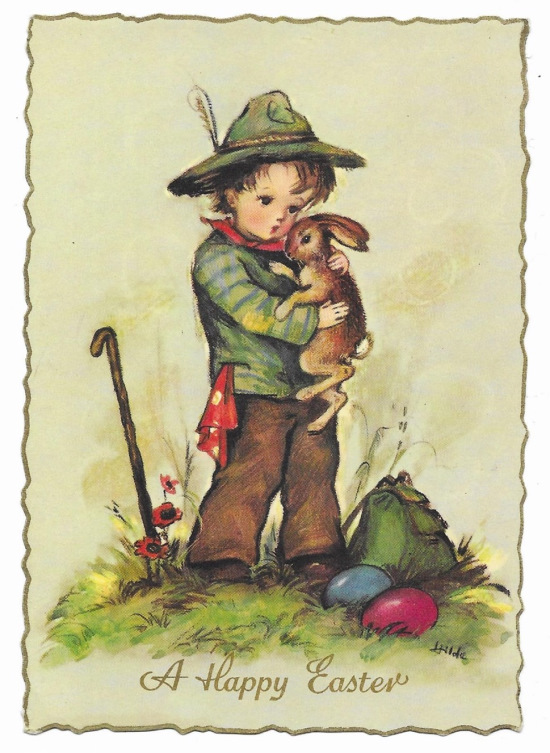
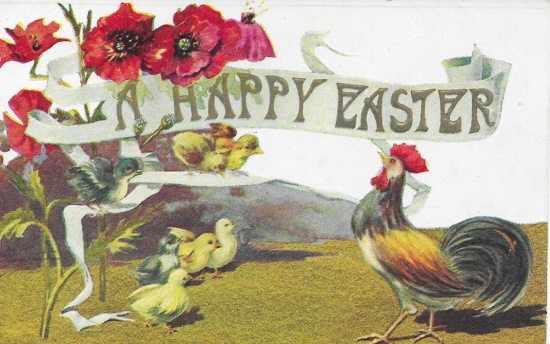
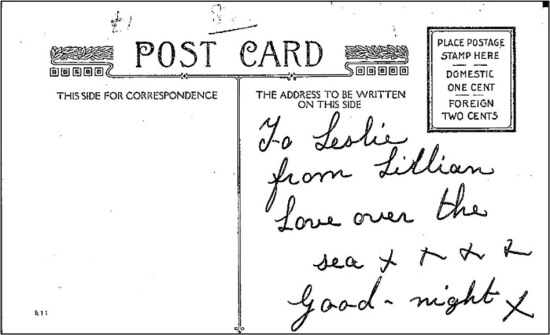
The second card, also A Happy Easter, is c1908, printed in America and has not been posted. The card shows a large cockerel and six young chicks against a background of hills and poppies. Where the stamp would be placed is the following printed message: Place Postage Stamp Here - - Domestic One Cent - - Foreign Two Cents.
Once again, I should like to wish all readers a Very Happy Easter 2021 and thank Judie for the production of our Newsletter since the first publication in August 1989!
Tom
Bartlett
Tower
Cottage, March 2021
e-mail: tomandinge40@gmail.com
46